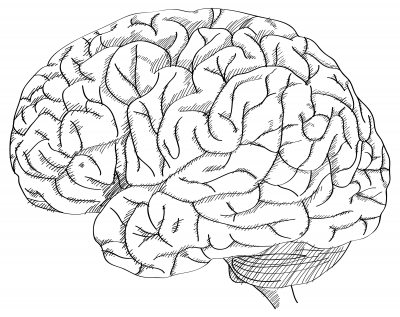In 2010, the Boston Globe started following Bruce Vincent, a popular grocery store owner in Westminster, MA, when he and his family chose to go public with his early-onset Alzheimer’s illness. Bruce recently lost his battle with early-onset Alzheimer’s at the age of 51 and chose to donate his brain to researchers at Massachusetts General Hospital.
Vincent spent his final years involved in a study at Mass. General which looked at this especially cruel, inherited form of Alzheimer’s disease that strikes at an early age. Only accounting for 4 percent of the 5 million American’s with the disease, early-onset is a very rare form of Alzheimer’s. However, researchers are still studying the inherited trait in hopes of being able to understand and tame this disease that defied treatment. Vincent’s mother, grandfather, and great-grandfather all died of dementia in their 50s.
While previous family members chose to hide their disease, the Vincent family decided to go public with it. “They weren’t a family that shut the doors and went into mourning for years,” said James Wessler, president of the Alzheimer’s Association of Massachusetts and New Hampshire. “They were engaged, they shined a spotlight on this disease and encouraged everyone possible to try and find a cure.”
Bruce Vincent’s physician and Director of the Alzheimer’s Research and Treatment center at Mass. General and Brigham and Women’s Hospital, Dr. Reisa Sperling, said that Vincent’s donation of his brain will help researchers to better understand the illness.
“One of the important aspects in the field is to correlate what we can see during life with [brain] scans with what we can see under the microscope [after death],” Sperling said. “I feel so badly that we did not have something to help Bruce,” Sperling said. “It’s a reminder that we are losing the time battle with this disease.”
Along with her research in early-onset Alzheimer’s, Sperling will begin a trial in February that will test whether drugs can hold off the disease in older people who have no symptoms of Alzheimer’s, but who have an abnormal protein in their brains believed to be a hallmark of the illness.
Vincent’s Country Store became a community gathering spot in the family’s Central Massachusetts town. Vincent was known by the community for his quick wit, impish humor, and generous support of local fundraisers. As news that Vincent’s last days were coming, an outpouring of support reached the family. Jennifer Shenk, a Vincent family friend, has been compiling the e-mails for the family. “I have gotten over 60; some are one-liners and others are a full page,” she said.
“The most common sentiment is that people felt like he really knew them, whether they were a neighbor, customer, or friend,” Shenk said. “He made people feel like they had a connection.”




